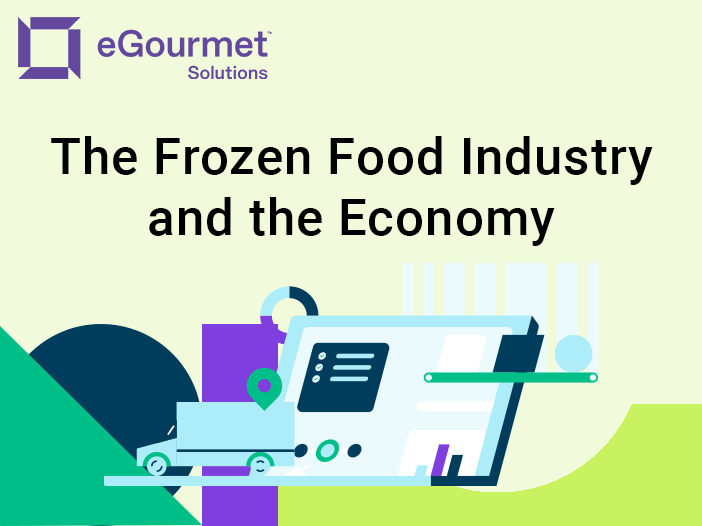
The frozen food industry has been growing rapidly for several years. Current growth projections indicate the market will almost double in the next 8 years, from $265 Billion in 2022 to over $500 billion by 2030. Recent news about the state of the United States economy and rising prices may be contributing to the industry’s development. . Factors ranging from affordability and consumer preferences, to innovation and shelf life can influence global frozen food consumption.
During a recession, consumers may opt for more cost-effective food choices, including frozen foods. The convenience and relatively lower cost of frozen foods compared to dining out or purchasing a variety of fresh ingredients can make them an attractive option for budget-conscious consumers. Research shows that frozen foods are 50% cheaper than fresh products. During a time of high inflation, almost 5% in 2023, lower food prices is likely to drive consumers to the frozen food aisle.
Some consumers may alter their consumption patterns during a recession, favoring essential products over luxury items. This could lead to an increased demand for staple frozen food items such as vegetables, fruits, meat, and basic meal options. The yearly global market report for the frozen food industry performed by Astute Analytica states that the global trade of frozen fruits and vegetables has grown an average of 3.5% per year. This is mainly due to the fact that frozen fruits and vegetables hold their nutritional value for longer after being frozen compared to fresh produce.
Frozen food offerings have evolved considerably since the 1950’s dinner tray. Every year there are new technological advances that allow for more complex prepared foods to be frozen without compromising quality. The introduction of healthier meals and snacks, along with more global recipes has the potential to attract new consumers to the frozen food category.
One advantage of frozen foods is their extended shelf life. During uncertain economic times, consumers may prefer to stock up on longer-lasting food items. Many Frozen foods can be stored for up to 3-6 months, allowing consumers to buy in bulk and reduce the frequency of grocery shopping trips.
To learn more about how eGourmet Solutions has planned around the economy and how we can help you during uncertain times, contact us today!